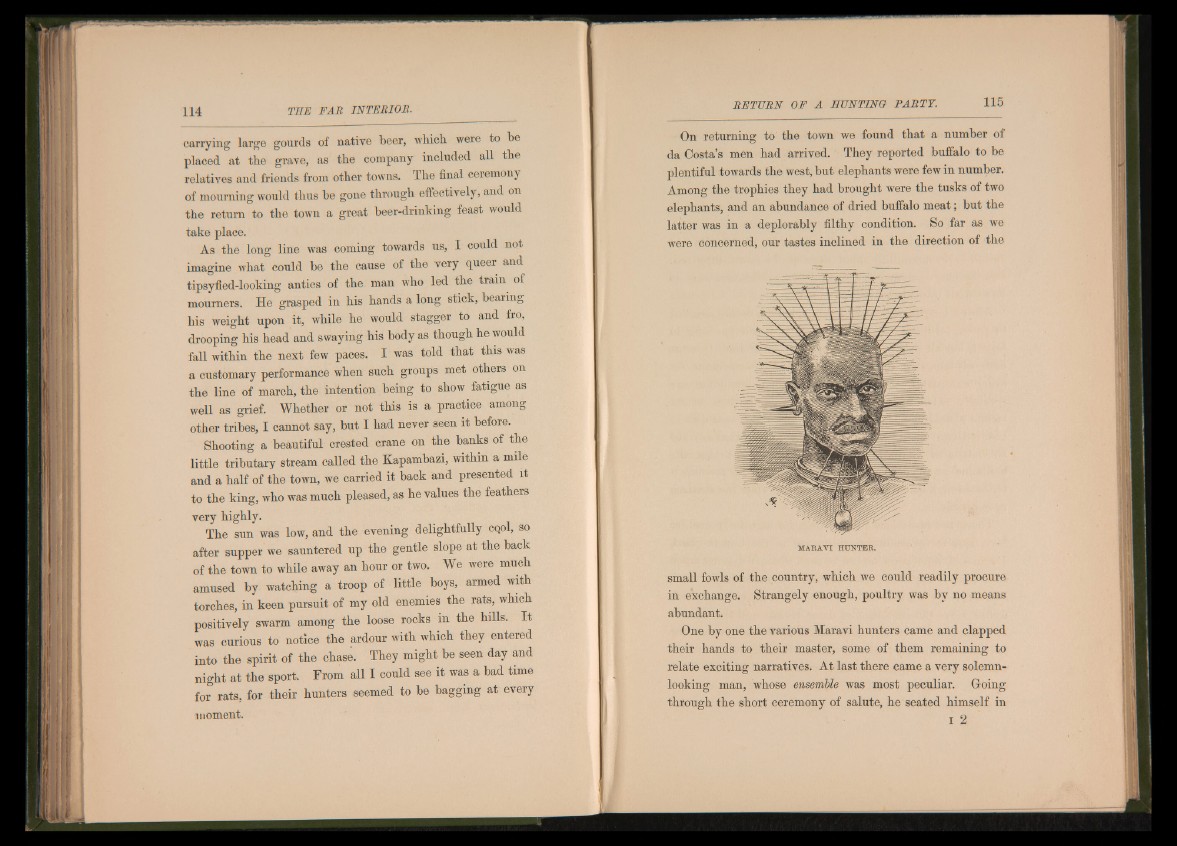
carrying large gourds of native beer, which were to he
placed at the grave, as the company included all the
relatives and friends from other towns. The final ceremony
of mourning would thus be gone through effectively, and on
the return to the town a great beer-drinking feast would
take place.
As the long line was coming towards us, I could not
imagine what could be the cause of the very queer and
tipsyfied-looking antics of the man who led the train of
mourners. He grasped in his hands a long stick, bearing
his weight upon it, while he would stagger to and fro,
drooping his head and swaying his body as though he would
fall within the next few paces. I was told that this was
a customary performance when such groups met others on
the line of march, the intention being to show fatigue as
well as grief. Whether or not this is a practice among
other tribes, I cannot say, but I had never seen it before.
Shooting a beautiful crested crane on the banks of the
little tributary stream called the Kapambazi, within a mile
and a half of the town, we carried it back and presented it
to the king, who was much pleased, as he values the feathers
very highly.
The sun was low, and the evening delightfully cqol, so
after supper we sauntered up the gentle slope at the back
of the town to while away an hour or two. We were much
amused by watching a troop of little boys, armed with
torches, in keen pursuit of my old enemies the rats, which
positively swarm among the loose rocks in the hills. I t
was curious to notice the ardour with which they entered
into the spirit of the chase. They might be seen day and
night at the sport. From all I could see it was a bad time
for rats, for their hunters seemed to be bagging at every
moment.
On returning to the town we found that a number of
da Costa’s men had arrived. They reported buffalo to be
plentiful towards the west, but elephants were few in number.
Among the trophies they had brought were the tusks of two
elephants, and an abundance of dried buffalo meat; but the
latter was in a deplorably filthy condition. So far as we
were concerned, our tastes inclined in the direction of the
MARAVI HUNTER.
small fowls of the country, which we could readily procure
in exchange. Strangely enough, poultry was by no means
abundant.
One by one the various Maravi hunters came and clapped
their hands to their master, some of them remaining to
relate exciting narratives, At last there came a very solemn-
looking man, whose ensemble was most peculiar. Going
through the short ceremony of salute, he seated himself in
i 2